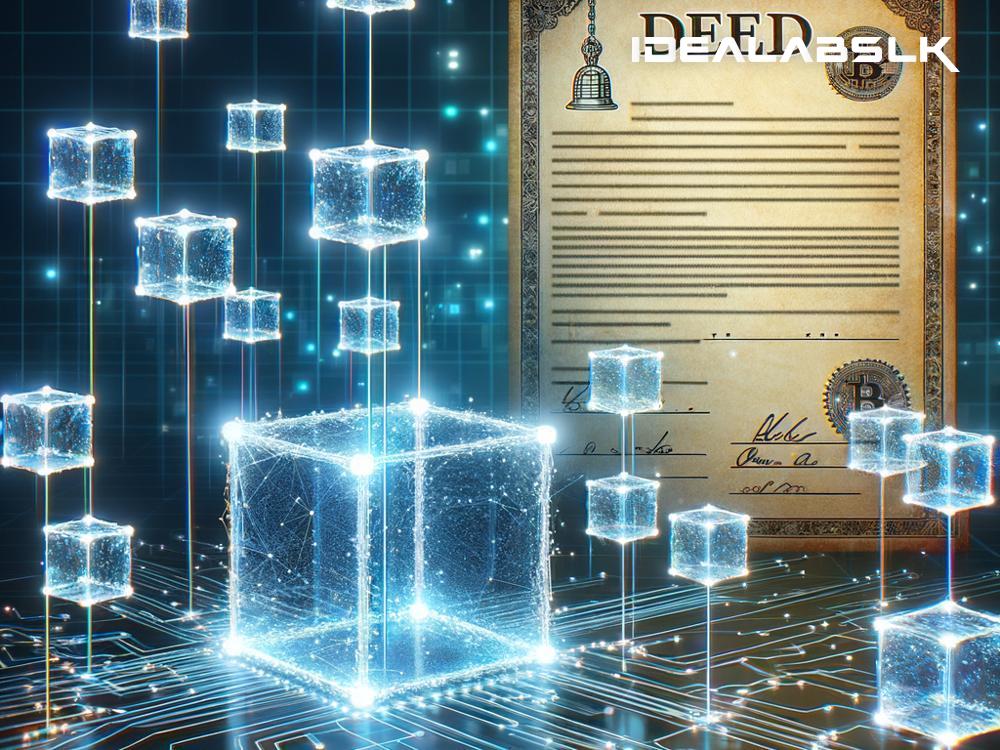Unlocking Efficiency in Real Estate: How Blockchain Simplifies Property Deeds
When it comes to buying a house or any property, the process can feel like you're tangled in a never-ending web of paperwork, legal procedures, and unexpected delays. At the heart of these transactions are property deeds - documents that prove ownership. Traditionally, these documents have been managed and recorded through local government offices, a system that, while reliable, can be slow, labor-intensive, and prone to human error. But what if there was a better way? Enter blockchain technology, a game-changer that's promising to streamline and secure real estate transactions like never before.
Blockchain might sound like something straight out of a sci-fi novel, but it's actually quite simple at its core. Imagine a digital ledger that is shared among a network of computers. Each "block" in the "chain" contains transaction data, and once recorded, it cannot be altered or deleted. This transparency and security make blockchain an ideal solution for simplifying and securing property deeds. Let's explore how.
1. Instantaneous and Transparent Transactions
Perhaps blockchain's most significant benefit is the instant verification and transfer of property deeds. Traditionally, transferring ownership could take weeks or even months, bogged down by manual paperwork and tedious verification processes. With blockchain, this transfer can occur almost instantaneously. Every transaction is recorded transparently and securely, which means everyone involved - buyers, sellers, and officials - can see the transaction's progress in real-time, drastically reducing the wait times and anxiety that often accompany real estate deals.
2. Fraud Reduction
Real estate fraud is a real problem, with forgeries and false claims leading to lengthy and expensive legal battles. Blockchain’s unique verification system ensures that once a deed is recorded on the blockchain, it's virtually impossible to tamper with. This practically eliminates the risk of fraud, providing peace of mind for everyone involved. In a world where property deeds on the blockchain become the norm, fake deeds and disputed ownership could become issues of the past.
3. Cost Efficiency
The traditional process of transferring property deeds isn't just time-consuming; it's also expensive. Fees pile up at every step, from county recording fees to the costs associated with title searches and legal verifications. Blockchain can drastically reduce these overheads. By streamlining the process and cutting out many of the middlemen, blockchain could save buyers, sellers, and local governments considerable amounts of money. It's a system that's leaner, faster, and cheaper.
4. Simplified Record Keeping
Property deeds often come with a long history, and keeping track of these records can be a nightmare. Every time a property changes hands, there's a risk of documents being misplaced, damaged, or even intentionally altered. Blockchain's digital ledger offers a solution that is both secure and easy to manage. Once a deed is recorded on the blockchain, it stays there forever, complete with a transparent history of transactions. This simplification of record-keeping not only makes life easier for property owners and buyers but also for governments and legal entities, ensuring that every property's history is just a few clicks away.
5. Enhanced Accessibility
Access to property records can often be restricted, requiring specific permissions or physical visits to local government offices. Blockchain technology, on the other hand, could make these records accessible to anyone with internet access. This democratization of information means that potential buyers can easily verify a property's ownership history, local governments can streamline their record-keeping, and sellers can prove their ownership without jumping through hoops.
To Wrap Up
The integration of blockchain into the management of property deeds is more than just a technological upgrade; it's a revolutionary step toward making real estate transactions simpler, safer, and more accessible to everyone. While there are hurdles to overcome, including regulatory approval and industry adoption, the potential benefits are too significant to ignore. The future of real estate, powered by blockchain, promises to transform the way we buy, sell, and manage property, making the process more efficient, transparent, and secure for all involved.
In essence, blockchain is not just revolutionizing the financial sector; it's set to simplify one of the oldest and most fundamental transactions known to humankind: the transfer of land and property. As we move forward, embracing this technology could mean waving goodbye to the cumbersome and costly processes of yesterday, and saying hello to a new era of streamlined, secure real estate transactions.

